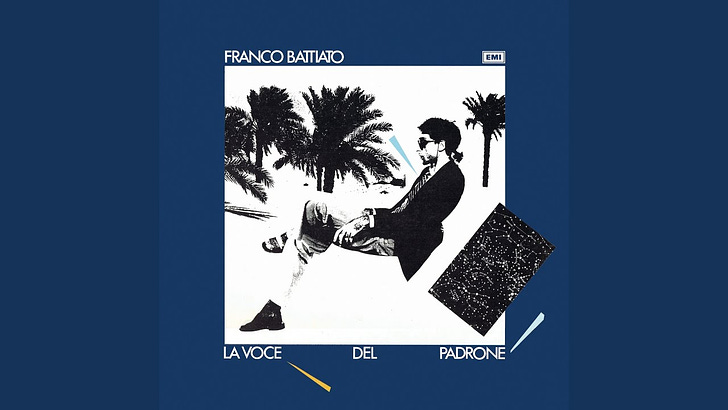Bandiera Bianca by Franco Battiato
Franco Battiato was born in Sicily in 1945, raised in a municipality called Ionia which no longer exists. When Battiato was two years old, his father abandoned the family, immigrating to New York City to become a truck driver. This put a damper on things.
With minimal help, his mother struggled to take care of him; distraught, broke, and alone, she became the first woman in Sicily to be treated with a drug called iproniazid, one of the first antidepressants to become available to the general public. Though he didn’t blame her, Battiato writes about how his mom had long periods of catatonia, how she was frequently unavailable in every way imaginable.
Battiato attended a high school in Catania and ended up living with one of his classmates. The family felt bad for Battiato and, wishing to keep him off the streets, decided to make a bedroom for him in their small cellar. It was there, at this friend’s apartment, where, with nothing else to do at night, Battiato taught himself how to play guitar.
His mother would frequently visit him asking for food, money, help, and support. It was too much for him to handle. He began to ignore her, to act like she didn’t exist, departing Sicily soon after graduation, choosing Rome instead of college, where he worked as a waiter at a dingy tourist cafe while performing music at night in the bars of Testaccio and Ostiense, sometimes busking, illegally, in a piazza near the Trevi fountain. It was during one of these illegal sessions that an impressed tourist visiting from Manchester approached him regarding a music connection in Milan. The tourist wrote down the name of the record label on an old, crumpled-up receipt and handed it to Battiato, who left for Milan the very next day, showing up at the label uninvited to perform a song. They turned him down, saying they were too busy for an unknown. He kept going back, sitting in the waiting room all day until they would agree to see him perform. Fine, they eventually said after two months of annoyance. He played his song. They enjoyed it but didn't think it was great. They told him to keep on working at his craft, maybe they would have another meeting in a year or so. Two more months passed. Battiato continued to show up every single day, pestering them for work. Why couldn't he at least perfect his craft with their help? They gave him a contract to record a single just so he would leave them alone.
Slowly, Battiato found an audience. Quickly, he lost touch with his mother. He wouldn’t see her again for nearly two decades. They reconvened while he was on tour in Sicily; she was in the audience and came backstage after the show. Despite their estrangement, he credits much of his success to her mental perseverance, to how, against all odds, she was able to raise him to have enough confidence to go out and become one of the most successful Italian musicians of his time. To me, this statement is a bit superficial, over-sentimental, and contradictory to statements previously made about her blatant neglect, her lack of ability to care for him. It was perhaps a comment made out of guilt, that great Catholic pastime, and was intended more as an apology for not being a strong enough son to take care of his incapacitated mother. This no doubt haunted him all his life.
It was music that filled the void.




